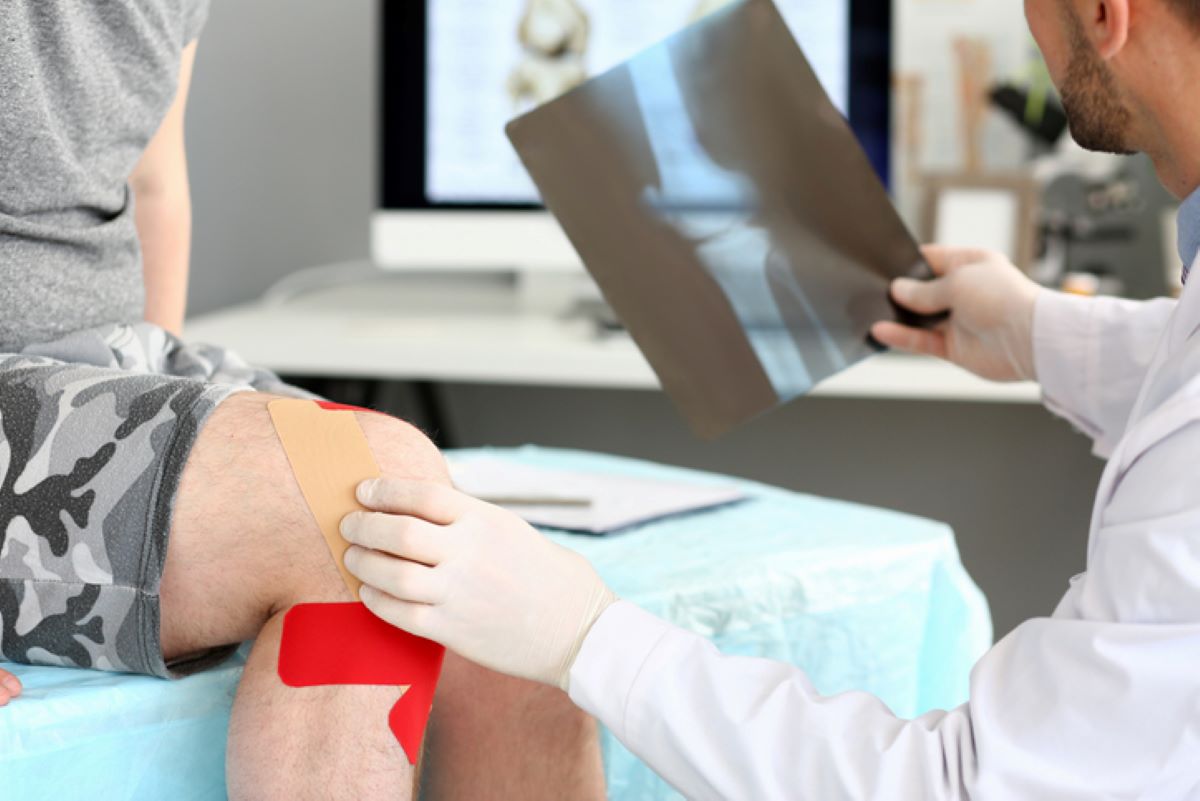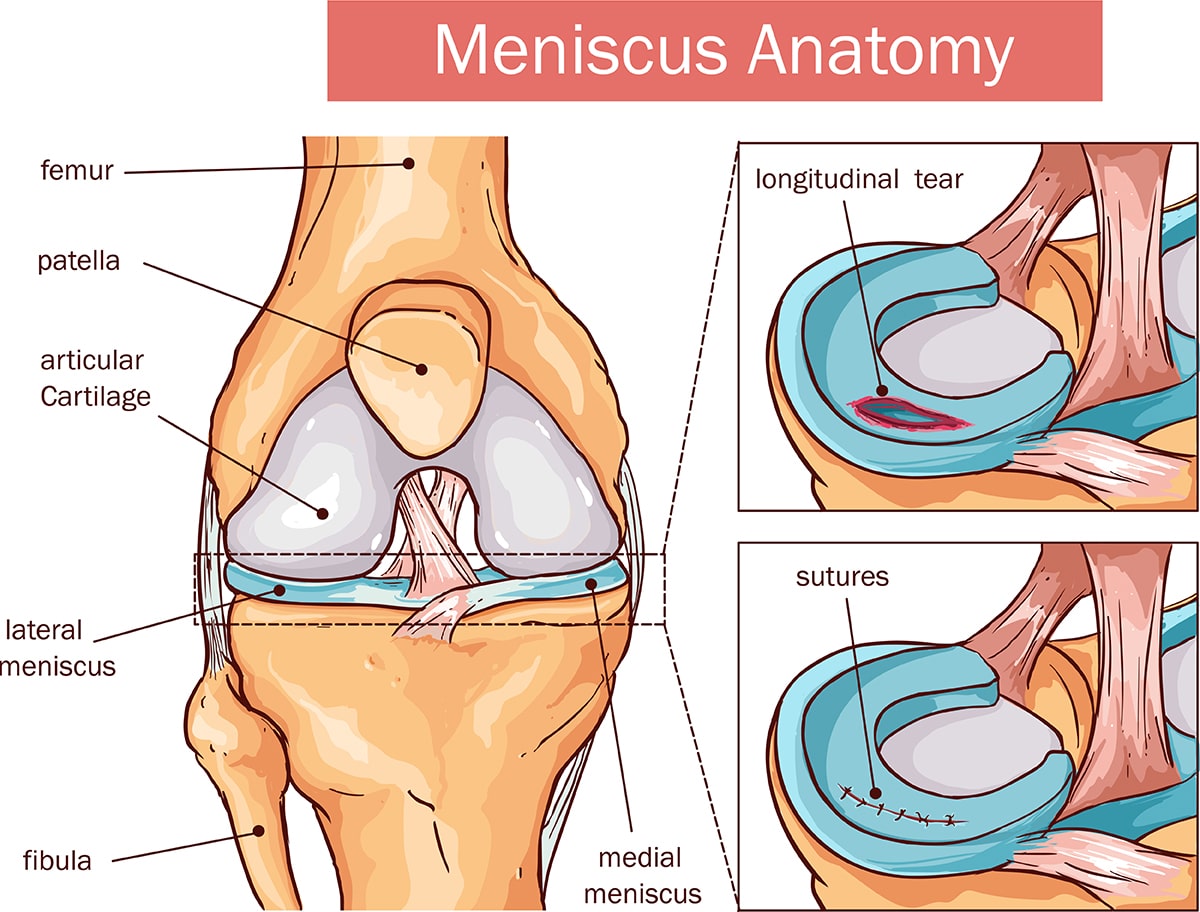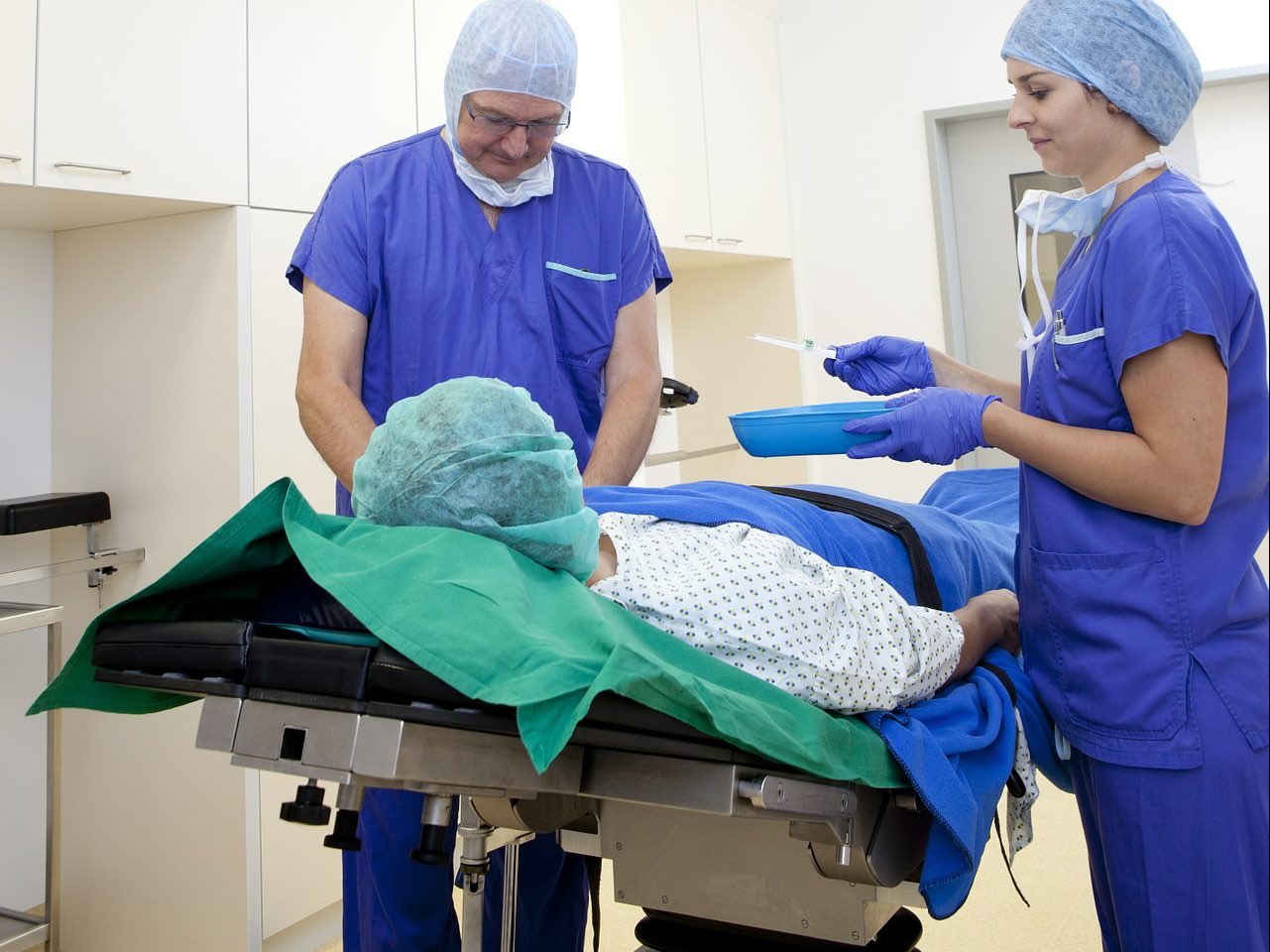

Finance
How Much Is ACL Surgery Without Insurance?
Published: November 10, 2023
Find out the cost of ACL surgery without insurance and explore financing options for this procedure. Manage your finances wisely to ensure affordable and accessible healthcare.
(Many of the links in this article redirect to a specific reviewed product. Your purchase of these products through affiliate links helps to generate commission for LiveWell, at no extra cost. Learn more)
Table of Contents
Introduction
Welcome to our comprehensive guide on ACL surgery – specifically, the cost of ACL surgery without insurance. The anterior cruciate ligament (ACL) is a crucial ligament in the knee that helps maintain stability and allows for movement. However, injuries to the ACL are common, especially among athletes and active individuals. ACL surgery is often necessary to restore function and minimize long-term complications.
Understanding the cost of ACL surgery without insurance is essential, as it provides insight into the financial implications of such a procedure. In this article, we will explore the factors that affect the cost of ACL surgery, provide an overview of the average cost without insurance, and discuss financing options and potential discounts for those seeking this procedure.
It is important to note that the cost can vary significantly based on location, the surgeon’s experience, the type of hospital or facility chosen, and whether there are any additional procedures required during the surgery. Therefore, it is crucial to consult with a healthcare provider for accurate information specific to your situation.
Now let’s delve into the world of ACL surgery costs and explore the options available for those without insurance coverage.
Understanding ACL Surgery
ACL surgery, also known as ACL reconstruction, is a surgical procedure that aims to repair a torn or damaged anterior cruciate ligament in the knee. The ACL is one of the four main ligaments that provide stability to the knee joint. Injuries to the ACL commonly occur during sports activities or as a result of sudden twisting or impact to the knee.
When the ACL is torn, it can lead to instability and a loss of function in the knee. This can make it difficult to perform everyday activities and participate in sports. ACL surgery is often recommended to restore stability and enable patients to regain their previous level of activity.
The procedure typically involves replacing the damaged ACL with a graft, which can come from various sources, such as the patient’s own tissue (autograft) or a donor’s tissue (allograft). The graft is attached to the femur and tibia, recreating the function of the natural ACL and allowing for proper knee movement.
ACL surgery is performed by an orthopedic surgeon specializing in sports medicine. The surgeon will make small incisions around the knee joint to access the damaged ligament. Using arthroscopic techniques, the surgeon will remove the torn ACL and prepare the area for the graft. The graft is then secured in place, typically with screws or other fixation devices. Once the procedure is complete, the incisions are closed, and the recovery process begins.
Rehabilitation plays a crucial role in ACL surgery recovery. Physical therapy is an integral part of the process and helps patients regain strength, flexibility, and stability in the knee. The duration of the recovery period can vary, but it generally ranges from several months to a year, depending on the individual’s progress and the surgeon’s recommendations.
Now that we have a better understanding of ACL surgery, let’s explore the factors that can influence the cost of this procedure.
Factors Affecting the Cost of ACL Surgery
The cost of ACL surgery can vary significantly depending on several factors. Understanding these factors can help you estimate and prepare for the potential costs involved. Here are some key factors that can influence the overall cost of ACL surgery:
- Location: The location where the surgery is performed can impact the cost. Different regions or cities may have varying healthcare costs and associated fees.
- Hospital or facility: The type of hospital or facility chosen for the surgery can also affect the cost. High-end hospitals or specialized orthopedic centers may charge more compared to smaller clinics or outpatient facilities.
- Surgeon’s experience: The experience and reputation of the orthopedic surgeon can influence the cost. Highly skilled and renowned surgeons may charge higher fees for their expertise.
- Type of graft: The type of graft used in ACL surgery can affect the cost. Autografts, where the patient’s own tissue is used, are generally more affordable compared to allografts, which require a donor’s tissue.
- Add-on procedures: In some cases, additional procedures may be required during ACL surgery. These can include meniscus repairs, cartilage restoration, or addressing other knee conditions. The need for these procedures can increase the overall cost.
- Imaging and diagnostic tests: Prior to the surgery, diagnostic tests such as X-rays, MRI scans, or CT scans may be needed to assess the extent of the injury. These tests can add to the overall cost.
- Anesthesia: The type of anesthesia used during ACL surgery can impact the cost. General anesthesia, which is commonly used for this procedure, tends to be more expensive than local or regional anesthesia.
- Post-surgery care: The cost of post-surgery care, including medications, physical therapy, and follow-up appointments, should also be taken into account when estimating the total cost of ACL surgery.
It is important to discuss these factors and their associated costs with your surgeon or healthcare provider. They can provide a more accurate estimate based on your specific needs and circumstances. Additionally, exploring financing options and seeking assistance or discounts can help mitigate the financial burden of ACL surgery without insurance, which we will discuss in the next section.
Average Cost of ACL Surgery Without Insurance
It is important to note that the cost of ACL surgery without insurance can vary widely depending on the factors mentioned earlier. However, to provide a general idea, the average cost of ACL surgery in the United States ranges from $20,000 to $50,000.
This estimate includes the surgeon’s fee, hospital or facility charges, anesthesia costs, diagnostic tests, and post-surgery care. Keep in mind that this figure is an average and can be influenced by various factors, such as geographic location, surgeon’s experience, type of graft, and any additional procedures required.
It is worth mentioning that some hospitals and orthopedic clinics may offer package deals for ACL surgery, which can provide a more comprehensive and predictable cost structure. These packages often include the pre-surgery consultation, surgical procedure, anesthesia, hospital stay, and a certain number of post-operative follow-up visits and physical therapy sessions.
If you are considering ACL surgery without insurance, it is crucial to consult with your surgeon or healthcare provider to obtain a detailed breakdown of the expenses involved. They can provide you with a personalized estimate based on your specific circumstances and guide you through the financial aspects of the procedure.
Now that we have explored the average cost of ACL surgery without insurance, let’s discuss some financing options that can assist in managing the financial burden.
Financing Options for ACL Surgery
For individuals without insurance coverage, financing options can help manage the cost of ACL surgery. Here are some common options to consider:
- Personal savings: If possible, utilizing personal savings or a health savings account (HSA) can be a straightforward way to cover the cost of ACL surgery. It allows you to avoid interest fees or the need to borrow money.
- Payment plans: Many hospitals and surgical centers offer payment plans or installment options. This allows you to spread the cost of the procedure over a defined period, typically with little to no interest. Discuss this option with your healthcare provider to determine if they provide flexible payment arrangements.
- Medical credit cards: Some companies offer medical credit cards specifically designed to cover healthcare expenses. These cards often provide promotional periods with low or no interest. However, it’s important to carefully review the terms and fees associated with these cards before applying.
- Healthcare financing programs: Many financial institutions and online companies offer healthcare financing programs. These programs provide loans with specific repayment terms and interest rates tailored for medical expenses. It’s advisable to compare different providers to find the option that best suits your needs.
- Crowdfunding: Utilizing crowdfunding platforms can be an effective way to raise funds for ACL surgery. You can create a campaign explaining your situation and share it with friends, family, and the online community, inviting them to contribute toward your medical expenses.
- Non-profit organizations and grants: There are non-profit organizations and charitable foundations that provide financial assistance to individuals in need of medical procedures. Research and reach out to these organizations to inquire about potential grants or financial aid that may be available for ACL surgery.
When considering financing options, it’s crucial to carefully review the terms, interest rates, and repayment plans. Take the time to understand the financial implications of each option and determine what works best for your specific situation.
Additionally, it may be worth exploring if there are any financial assistance programs or discounts available at the hospital or surgical center where you plan to have the procedure. Some institutions offer reduced rates or sliding-scale fees for individuals without insurance.
By exploring these financing options and potential discounts, you can better manage the cost of ACL surgery without insurance and prioritize your health and well-being.
Seeking Assistance or Discounts
If you are facing financial challenges and need assistance or discounts for ACL surgery, there are several avenues you can explore:
- Government assistance programs: Depending on your income level and eligibility criteria, you may qualify for government assistance programs that can help cover medical expenses. Programs such as Medicaid, Medicare, or state-specific healthcare programs may provide financial aid.
- Charitable organizations and foundations: There are numerous charitable organizations and foundations that provide financial assistance or grants for medical procedures. Research and reach out to these organizations to inquire about their eligibility criteria and application process.
- Corporate healthcare partnerships: Some companies have partnerships with specific hospitals or healthcare providers that offer discounted rates for their employees. Check with your employer to see if they have any such partnerships or insurance coverage options that you may be eligible for.
- Hospital financial aid programs: Many hospitals have financial aid programs to assist individuals in need. These programs are often based on a sliding scale and take into account your income and financial situation. Reach out to the hospital’s financial services department to inquire about any available assistance programs.
- Medical tourism: Exploring the option of medical tourism can sometimes provide more affordable options for ACL surgery. Certain countries offer high-quality medical care at lower costs. However, it is crucial to thoroughly research the medical facilities, the surgeons’ credentials, and the overall safety and quality of care before considering this option.
- Negotiating with healthcare providers: In some cases, healthcare providers may be open to negotiating fees or providing discounts for uninsured patients. It is worth having open and honest discussions with your surgeon or hospital billing department to explore potential cost-saving options.
Remember, each situation is unique, and the availability of assistance or discounts may vary. It is important to be proactive, communicate with healthcare providers, and diligently research the options available to you.
Lastly, consider involving a patient advocate or healthcare advocate who can guide you through the process of seeking assistance and provide support in navigating the financial aspects of ACL surgery.
By being proactive and exploring these resources, you increase your chances of finding the assistance and discounts you need to make ACL surgery more affordable.
Conclusion
ACL surgery is a critical procedure to restore stability and functionality to the knee after an ACL injury. However, the cost of ACL surgery without insurance can be a significant financial burden for many individuals. Understanding the factors that affect the cost, exploring financing options, and seeking assistance or discounts are essential steps in managing the expenses associated with ACL surgery.
Factors such as location, hospital or facility choice, surgeon’s experience, type of graft, and add-on procedures can influence the overall cost of ACL surgery. It is important to consult with your healthcare provider to obtain a personalized estimate based on your specific needs and circumstances.
Financing options, such as personal savings, payment plans, medical credit cards, healthcare financing programs, crowdfunding, and grants, can help alleviate the financial burden of ACL surgery. Additionally, researching government assistance programs, charitable organizations, and corporate healthcare partnerships can provide further avenues for financial support.
Be proactive and explore all available resources to find the best options for your situation. Engaging in open discussions with healthcare providers and negotiating fees can also help reduce costs. Remember, each case is unique, and it may require time and effort to find the right financial solutions.
Ultimately, the goal is to prioritize your health and well-being. ACL surgery may be a necessary step in your journey to recovery, and by taking a proactive approach and seeking assistance, you can overcome the financial obstacles associated with the procedure.
Disclaimer: The information in this article is for informational purposes only and should not be considered as medical or financial advice. It is always recommended to consult with a qualified healthcare provider and financial advisor for personalized guidance based on your specific circumstances.














